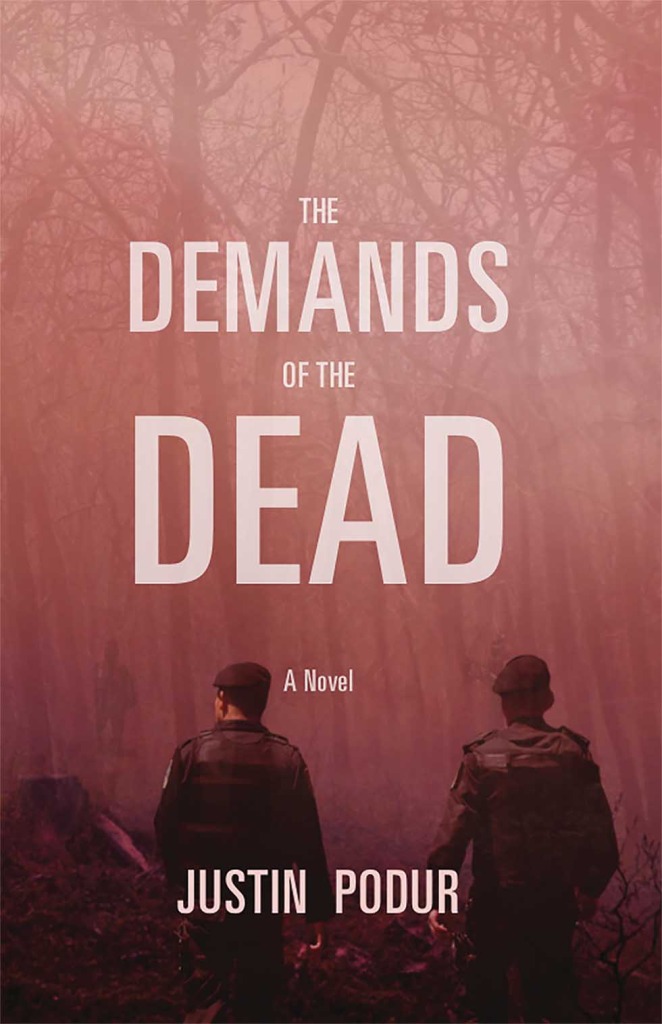Book review: A Detective Story Set In The Middle Af An Indigenous Insurgency
Demands of the Dead, By Justin Podur, Reviewed by Megan Cotton-Kinch
20 September, 2014
Tworowtimes.com
 While I’ve always enjoyed a good detective novel, I’ve always felt like this genre usually contains an underlying message of support for the police, and never really takes a critical look at the role of “law-and-order” in maintaining a society based on the oppression of poor people and the theft of Indigenous land. At best, this kind of stories will look at corruption in police and politics but offer no solutions. This is where Demands of the Dead transcends the genre, and moves beyond works like The Wire by actually looking at the larger political context and offering possible solutions. In the case of Podur’s novel these are represented by the Zapatista Indigenous insurgency, which has an important presence in the book.
While I’ve always enjoyed a good detective novel, I’ve always felt like this genre usually contains an underlying message of support for the police, and never really takes a critical look at the role of “law-and-order” in maintaining a society based on the oppression of poor people and the theft of Indigenous land. At best, this kind of stories will look at corruption in police and politics but offer no solutions. This is where Demands of the Dead transcends the genre, and moves beyond works like The Wire by actually looking at the larger political context and offering possible solutions. In the case of Podur’s novel these are represented by the Zapatista Indigenous insurgency, which has an important presence in the book.
In the opening of Demands of the Dead, an ex-cop receives an email, in Spanish that says, “The dead demand so much more than vengeance.” But the dead are more than the two dead police, or his dead friend, but include all the dead in southern Mexico who have been killed in the counter-insurgency. And unlike most books in the detective genre the novel does offer up the possibility of solutions that go beyond personal vengeance.
Did Zapatista guerrillas murder two police officers? Or was it the Mexican police? Or drug traffickers? What were the police, in the political context of an armed uprising, doing on Zapatista territory anyway? The main character “Mark” is in southern Mexico to investigate. But in reality he is there to investigate the murder of his best friend, a progressive lawyer and activist, back in New York, by cops on the force he used to serve on.
The novel, and its protagonist “Mark”, doesn’t shrink from looking at what it means to be an ex-cop, and ‘independent’ contractor working with semi-sponsorship from the American embassy and their proxies in the Mexican counter insurgency (police and military). Back in the States, Mark’s murdered best friend had told him, “You can’t help. You should just go. I don’t care what kind of person you are Mark. If you’re a cop, we’re enemies.” But Mark is not just an ex-cop, he also has wilderness survival and tracking skills, and a personal history that gives him connections to progressive lawyers and an inclination to cross into Zapatista territory to get their side of the story.
As asides into the two cases, one official and one personal, there are discussions of Zapatista political and military strategy, with people’s organizations and democratic decision-making as preferred weapons in a struggle, but with an armed self-defense strategy in reserve. Podur also shows what they are up against: a counter-insurgency strategy targeted at the Indigenous Zapatistia movement that is linked with machine politics, American imperialism and drug money.
Nonetheless, the novel has a very nuanced take on the state and police systems, seeing them worthy of analysis and full of contradictions.
The book has realistic fight scenes with descriptions to suit martial arts fans, and accurate descriptions of guns and military tactics. The main character’s wilderness skills are not overplayed but are realistic assessments of the kind of things that skilled trackers can do (hear people approach before they arrive due to concentric disturbances in the forest) and can’t do (find individual tracks of intruders on a heavily trafficked roadway). The one thing I’d wish for is more fully developed female characters with plot importance.
The author, Justin Podur, is better known as a non-fiction writer and commentator on political topics, including Indigenous issues and solidarity efforts with Palestine. He is a professor at York University who does research on forestry and forest fires. In the novel, this background is present but doesn’t overwhelm the story.
The novel is available for download or purchase as a book from Justin’s website http://podur.org/demandsofthedead
Comments are moderated
